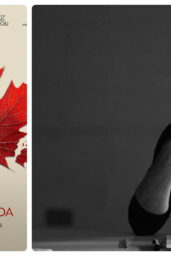Only hours before MUBI Fest Istanbul 2024 was set to launch, the festival was notified that its opening film, Luca Guadagnino's Queer, was banned by the Istanbul Kadıköy District Governorship. This unexpected move stirred discussions around censorship, freedom of expression, and the future of queer representation in film.
Queer is Guadagnino's adaptation of a William S. Burroughs novel, exploring the life of an American expatriate grappling with his sexual identity. Set in the 1950s, the film dives into deeply personal and, at times, explicit themes, which Guadagnino himself noted were “vital” for an honest portrayal of the protagonist's experiences.
However, Turkish authorities deemed the film's content potentially disruptive to public peace, explicitly pointing to “provocative” scenes. This decision aligns with previous instances where films centered on LGBTQ+ themes have faced restrictions or bans in conservative regions, particularly in parts of the Middle East.
The ban has reignited a larger conversation about artistic freedom versus state control. While some defend the decision as an attempt to align media with societal values, others view it as a regression, limiting exposure to narratives that deserve a platform. Guadagnino, known for Call Me by Your Name, has not issued a statement yet, but the film's sudden withdrawal could affect its release strategy in other countries, particularly those with similar cultural restrictions.
The ban of Queer underscores the complexities of film censorship in today's world. As art becomes a tool for social commentary and reflection, governments face increasing pressure to balance cultural sensitivity with freedom of expression. This controversy could lead to increased visibility for Queer, as restrictions often fuel curiosity and dialogue around the stories that some powers would prefer to silence.
The news of Queer being banned in Turkey is both frustrating and thought-provoking. On one hand, it's disheartening to see films restricted simply because they showcase LGBTQ+ themes, as though such narratives inherently threaten public order. Guadagnino's films are celebrated for their authenticity and emotional depth, and Queer is no exception. By curtailing access to such art, the Turkish government only reinforces the importance of telling diverse stories. Despite the ban, Queer will likely garner even more attention and, hopefully, spark critical discussions on the global stage about the value of artistic expression. It's a reminder that film, as a medium, is a powerful lens through which we explore shared humanity, even when some seek to shut it down.
Do you think banning films with controversial content helps maintain public peace, or does it stifle necessary conversations about society and identity?












